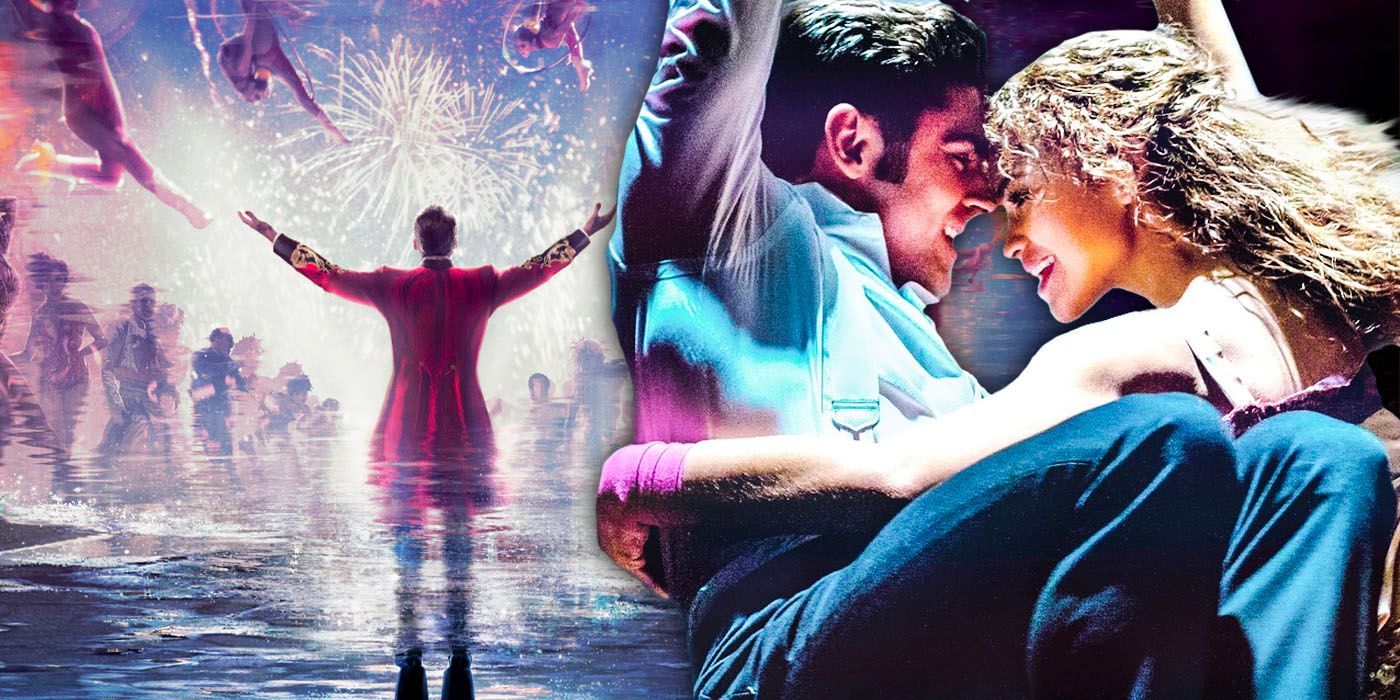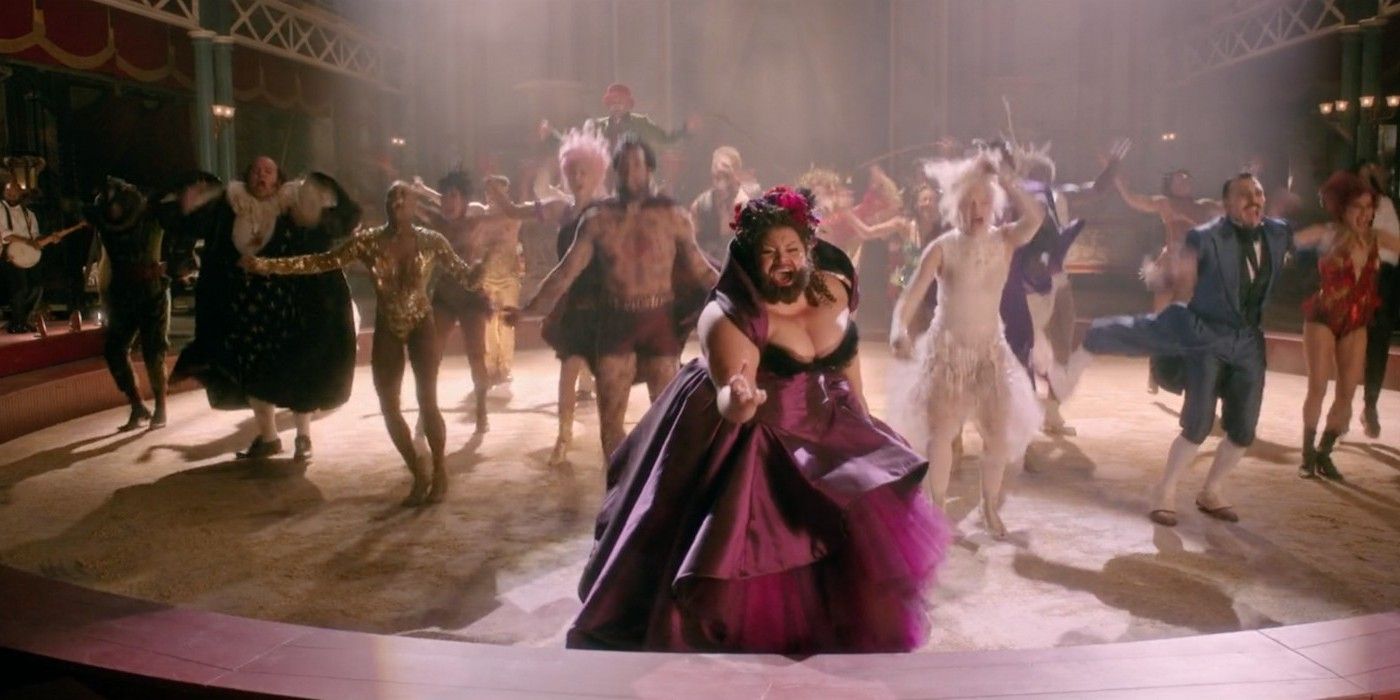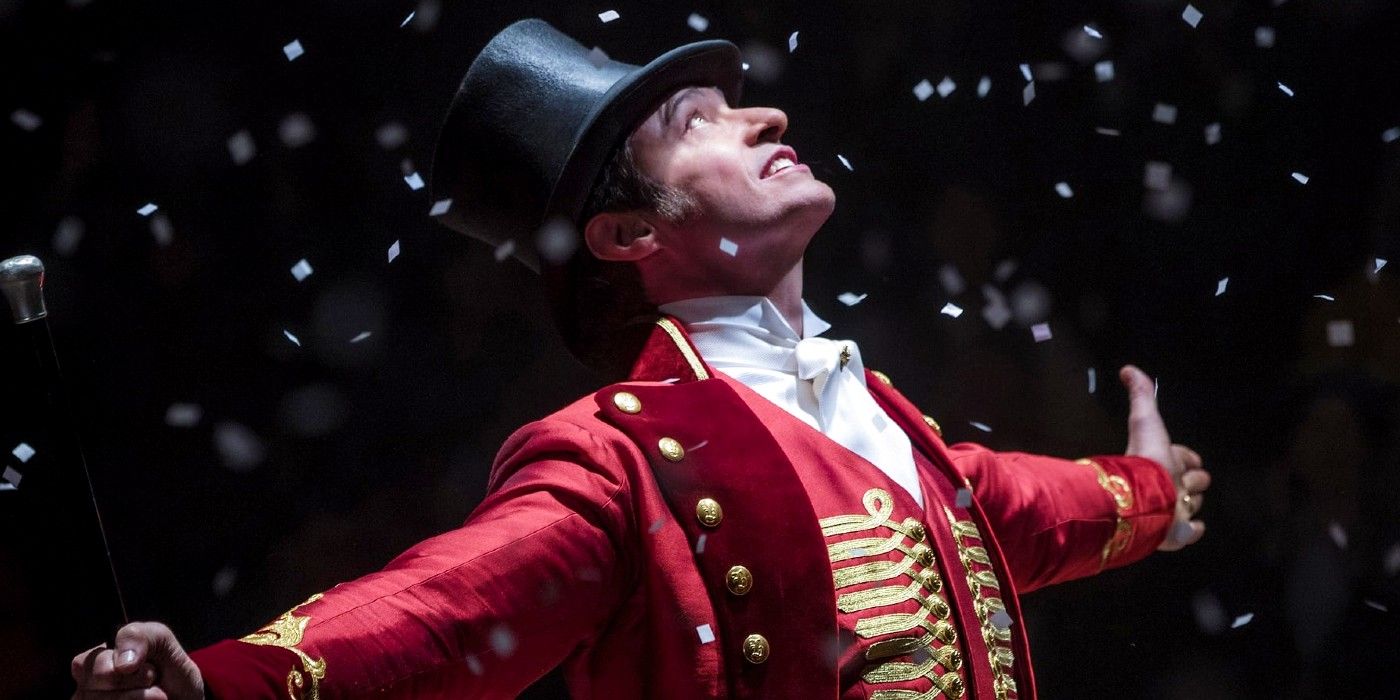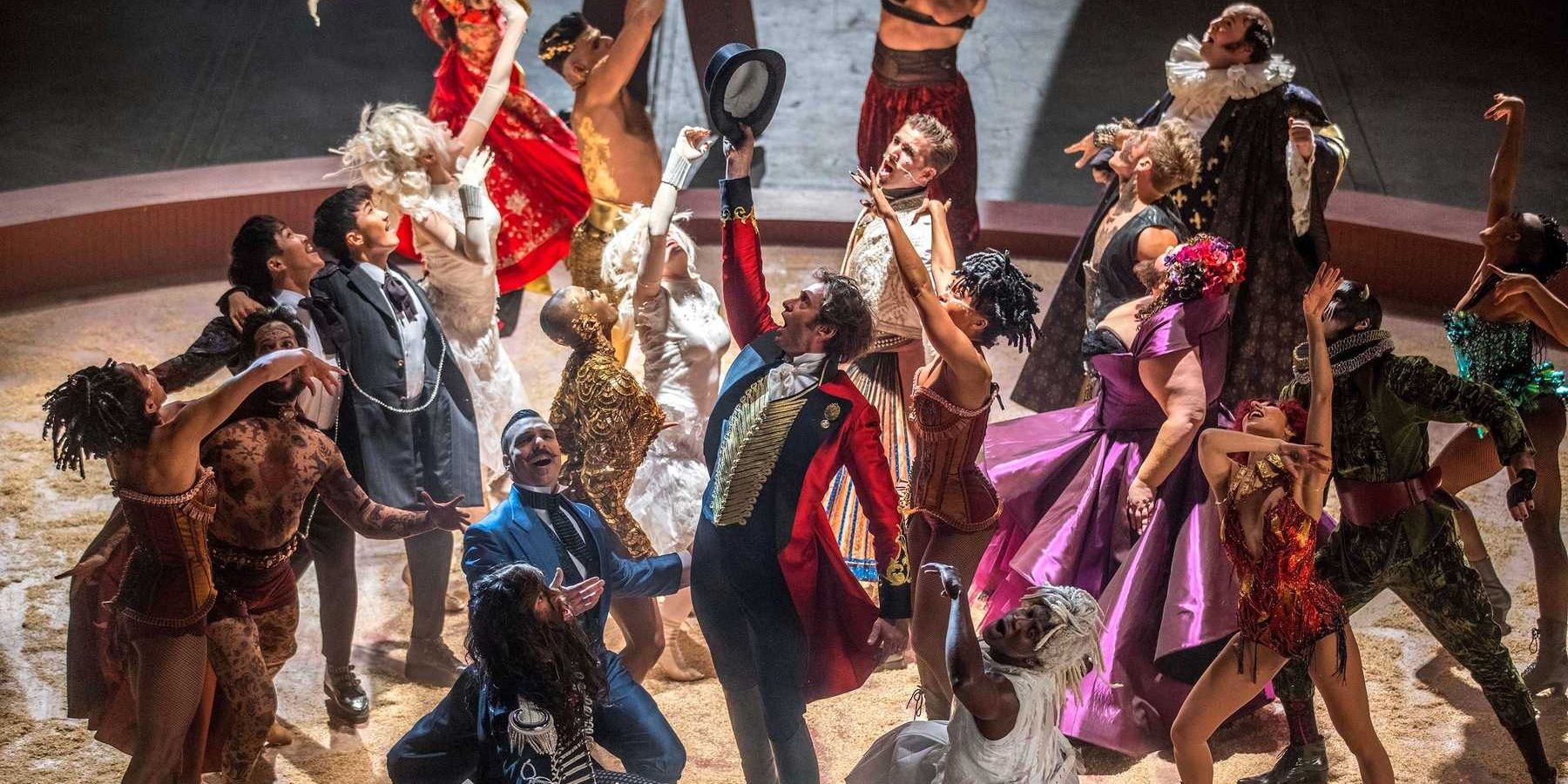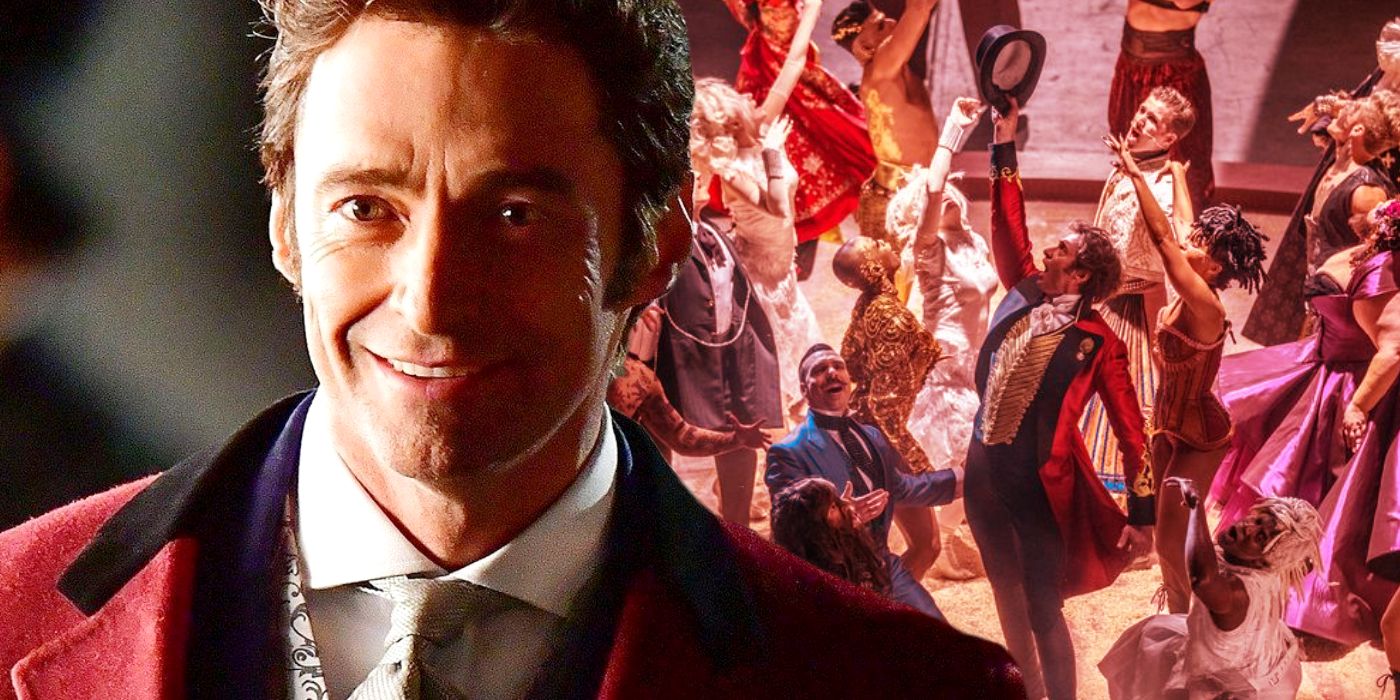Critics hated The Greatest Showman when it was released in 2017, but the film's overwhelming word-of-mouth success and undeniably catchy soundtrack made the P.T. Barnum musical a hit. The movie opened with an underwhelming box office following a universal pan from critics but nearly doubled that by its second weekend - and continued to grow until it became a record-breaking blockbuster and a massive commercial success. After becoming one of the highest-grossing movie musicals of all time, it's apparent that The Greatest Showman had widespread appeal and a devoted fanbase far beyond its critical failures. So why did critics hate Greatest Showman?
The Greatest Showman is an original musical inspired by the life of P.T. Barnum, with Hugh Jackman in the starring role. Although Jackman is mostly associated with his role as Wolverine in the X-Men film series, he built a successful career in musical theater; from playing Curly in the 1998 West End production of Oklahoma!, to a starring role as Jean Valjean in the 2012 Tom Hooper film adaptation of Les Misérables. Hugh Jackman was instrumental in getting The Greatest Showman made, becoming attached to the project in 2009 and championing its production until the 2017 premiere. Following the mainstream success of Hamilton, which proved that musicals could achieve mainstream popularity outside of Broadway, and La La Land, which proved that original musicals could be a critical and commercial success at the box office, the world was finally ready to take a chance on The Greatest Showman.
Anticipation for the film was intense, including thoughts of Academy Award contention. But the universal critical panning of the film meant that enthusiasm quickly waned. Criticism included that it didn't cover the true story of Barnum's circus in a fulfilling way and that it was shallow and watered down. Thus, critics set up The Greatest Showman to be a massive commercial failure for the studio – a similar fate to that experienced by later musical Tom Hooper's Cats. While the movie did cop many bad reviews, it was a huge commercial success through word of mouth and many devoted fans. But why did critics hate Greatest Showman, and how did they get it so wrong?
Critics Hated The Undeniably Catchy Soundtrack
Even the harshest critics of the movie were willing to admit that the songs, written by Benj Pasek and Justin Paul, who were also songwriters for Dear Evan Hansen and La La Land, were catchy earworms. The music for The Greatest Showman was powerful and inspired by pop, unlike those Pasek and Paul wrote for the initial box office risk La La Land, which were more influenced by old-school Hollywood musicals such as Singin' In the Rain. So why did critics hate Greatest Showman's soundtrack? A key element critics did not enjoy was that the serious story of P.T. Barnum – many of the darkest parts of which were elided – was watered down with saccharine pop music, doubled by the choice to score a period movie to a pop soundtrack. But the music of The Greatest Showman was beloved by audiences, who found it wildly danceable and turned the soundtrack for the movie into a hit: after four weeks, it hit No. 1 on the Billboard charts, and became the best-selling soundtrack of 2018. Even critics eventually had to admit the music was stellar when the standout song "This Is Me" received an Academy Award nomination for Best Original Song.
The songs of The Greatest Showman were engineered for sing-alongs and were successful across demographics – something most musicals never achieve. Critics argued that the music was too low-brow and mainstream, whereas truly great musical theater should be held to a higher standard. However, the success of Broadway musicals like Dear Evan Hansen or Hamilton, which proved that musicals can break into mainstream culture and be hugely successful, made the accessibility of The Greatest Showman a strength, rather than a weakness. The soundtrack proved to be particularly popular with teenagers, who helped propel the movie to success by flooding social media with covers of the songs.
Although the primary criticism of The Greatest Showman's music was about its saccharine styling and eclectic mix of genres, the album was successful because of just that. The wide range of musical influences meant that there was something for everyone. Much like the mainstream popularity of the Hamilton soundtrack – which also defied genre conventions and mixed the period setting with modern influences - The Greatest Showman deviated from standard show tunes to overwhelming success. It did so with such aplomb that a second album of covers by pop stars - called The Greatest Showman: Reimagined - added renewed interest and picked up even more chart success for the original numbers.
The Pillioried Decision To Simplify Barnum's History Improved The Story
The biggest criticism of The Greatest Showman was that it whitewashed P.T. Barnum's story and his controversial history in favor of an inclusive message and broader appeal - a criticism that has also been leveled at Hamilton since its release on Disney+. Both musicals tell the story of controversial historical figures and take artistic license with simplifying their stories; Hamilton has to break down a complex political history into a digestible package, and The Greatest Showman treats P.T. Barnum as a mythological figure instead of a historical one, using his life as a framing device to tell a story about inclusion and acceptance.
While critics condemned the movie musical for this, The Greatest Showman was never marketed as a legitimate reckoning with the legacy of P.T. Barnum, but rather as a fun, flashy musical about acceptance and creativity. Criticizing The Greatest Showman for its historical accuracy is missing the point of the movie, which never advertised itself as anything but an escapist fantasy with a killer soundtrack and a visually lush design.
Ironically, Baz Luhrmann's 2001 movie-musical Moulin Rouge! was praised for the same reasons that The Greatest Showman failed critically: wrapping a simple story in a stylish and over-the-top package, and creating a series of stunning musical set pieces that were strung together to form a bare-bones plot. While The Greatest Showman failed to critically examine P.T. Barnum, audiences loved it because it was exactly what it promised to be: a classic rags-to-riches story, starring an intensely relatable underdog challenging the wealthy and villainous elite.
Critics Called It Corny (But That Is The Point)
Musical theater has long been disparaged for its inherent corniness, and being decidedly uncool; a reputation Broadway has been pushing back on with the critically acclaimed revival of Oklahoma! in 2019, or the subversiveness of Hamilton's diverse casting. Instead, The Greatest Showman embraces every convention of the genre and celebrates it with a megawatt smile and a kickline. The movie's subplot about a curmudgeonly critic who hates Barnum's circus for not being serious theater almost winks at the critics, and makes it clear that The Greatest Showman is determined to be a broad, escapist movie about the expression of joy.
Devoted fans of the movie credit that escapism as part of their love for it. Premiering in the midst of prestige TV and on the same weekend as the darker and more controversial Star Wars: The Last Jedi, The Greatest Showman's underdog story was a candy-coated, family-friendly escape. It was helped by its optimistic message about literally pulling yourself up by your bootstraps and facing the snobby, wealthy villains; opening while its American audience was facing historic income inequality meant that everyone could identify as P.T. Barnum and his band of underdogs. Critics missed the mark on The Greatest Showman because it was a light, bright movie that didn't take itself seriously; audiences embraced the film because of its open-hearted expression of joy.
The Greatest Showman was never conceived as an indictment of P.T. Barnum's legacy, or a brilliant artistic expression meant to subvert audience expectations. Critics lampooned the movie for failing to live up to expectations that The Greatest Showman musical never set. Instead, it succeeds because it achieves exactly what it set out to do: provide a glossy and fantastical escape from reality, set to a buoyant soundtrack that's impossible to not sing along with. The Greatest Showman promised its audiences an infectious movie about good people that celebrated inclusion and creativity, and that's exactly what they got.
Why A Greatest Showman Sequel Should Ignore The Critics
After the immense popularity of The Greatest Showman, there's been talk about whether a sequel could be in the works – but should it kowtow to critical consensus? The short answer to this is that while Hugh Jackman and Michelle Williams are very willing and eager to make The Greatest Showman 2 happen, work on a sequel hasn't begun and there doesn't seem to be much traction for it, so it's unlikely to happen any time soon. If it does happen, though, The Greatest Showman 2's biggest mistake would be listening to its critics and making the story darker or more historically accurate. Audiences clearly loved the first film and would likely want more of the same. Musicals like Mama Mia 2 have thrived on continuing the same approach as their originals, and a hypothetical The Greatest Showman 2 would be no different. Most importantly, if The Greatest Showman 2 were to get made, it shouldn't ditch its catchy music. The story may have wrapped up nicely enough not to warrant a sequel to The Greatest Showman, but audiences will probably always want more of its upbeat, pan-genre songs.

